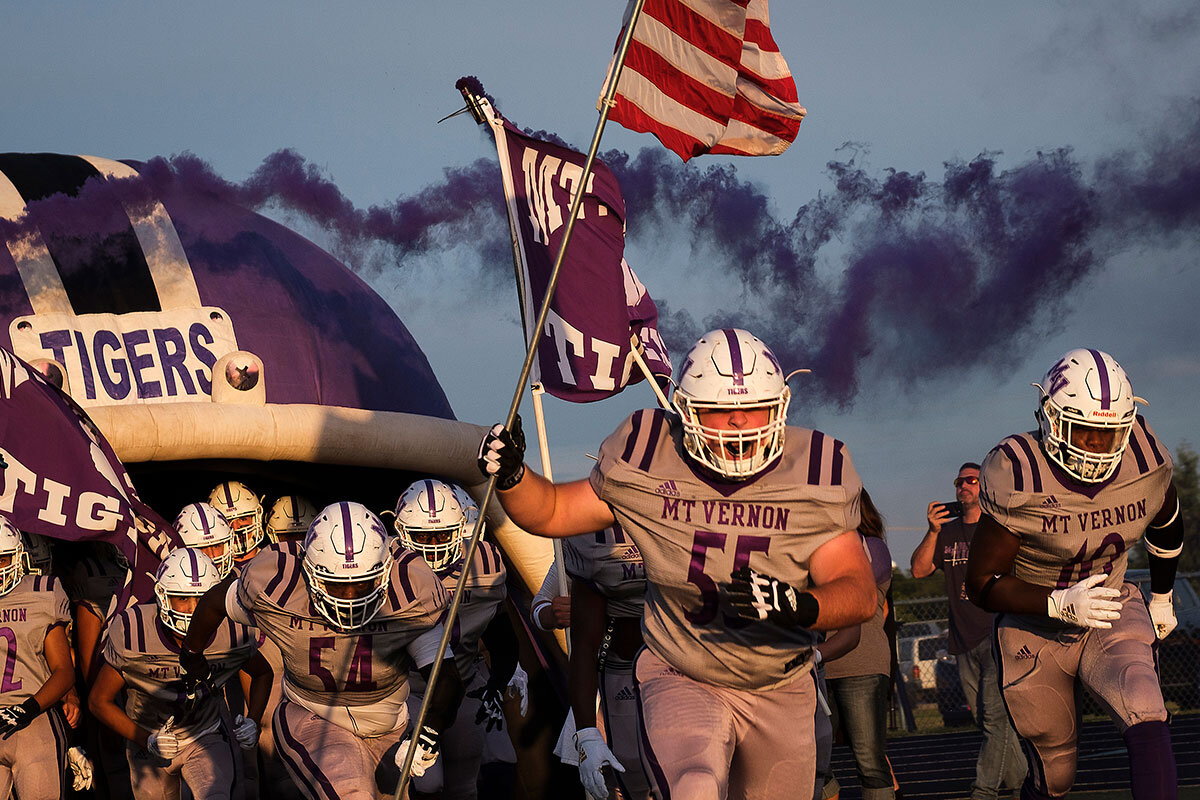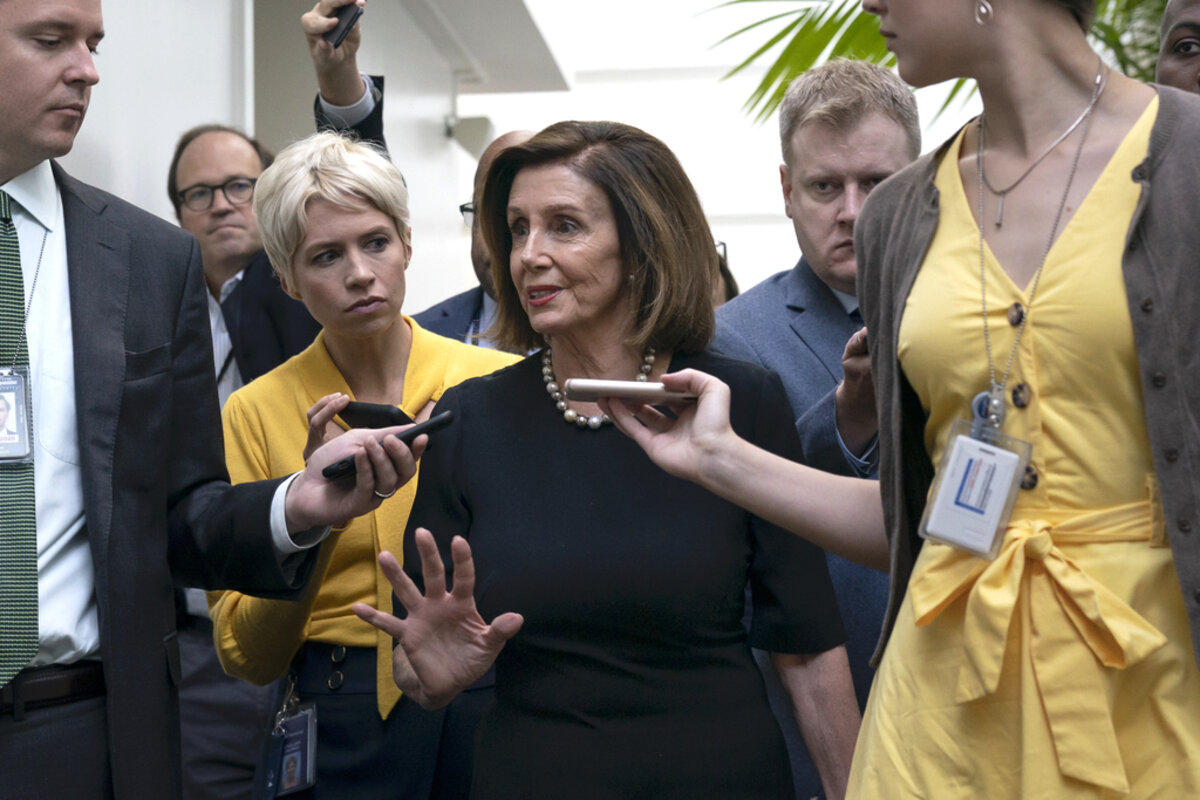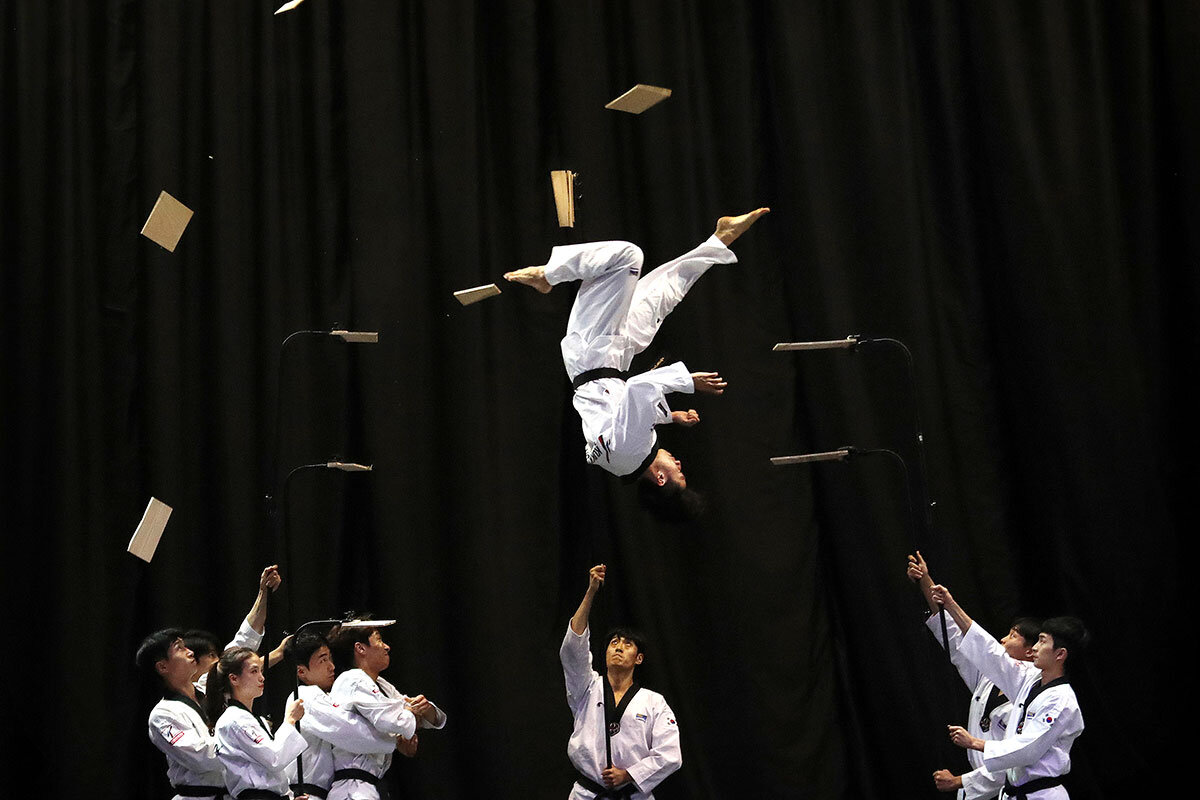What was the tipping point for moderate Democrats, who for so long resisted calls for impeachment? A group of freshmen with military or intelligence service says it came down to two words: national security.
Monitor Daily Podcast
- Follow us:
- Apple Podcasts
- Spotify
- RSS Feed
- Download
 Kim Campbell
Kim Campbell
Today’s stories investigate the role of moderate Democrats in impeachment, President Donald Trump’s multilateral approach at the U.N., corruption’s shadow over auto workers, how climate change is altering the oceans, and how far second chances should go in football.
But first, do societies value married people more than those who are single?
In 2001, when a movie about “singleton” Bridget Jones was capturing attention, I reported on the stereotypes that dog people who don’t marry. Americans have trouble envisioning women being single into middle age and beyond, sources told me. Cultural images of what it means to be “happily single” were difficult to come by.
The U.S. Census Bureau reports this month that the percentage of people who are married has continued to decline since then, while the percentage of people who have always been single has continued to rise. In honor of Unmarried and Single Americans Week last week, social scientist Bella DePaulo wrote a column pointing to signs of progress.
“Single people are a force, not just in the U.S., but in many nations all around the world,” wrote the “Singled Out” author.
More media and scholarly attention is being given to singlehood, she says, and “research is documenting the strengths of single people and the benefits of single life.”
The news is tempered by other statistics, including that more than 1,000 federal laws exist that “benefit and protect only people who are legally married,” she tells me in an email conversation. But in her column she also notes that singlism – “the stereotyping, stigmatizing, and discrimination against singles” – is being called out more, especially as it relates to health.
That’s something Bridget Jones would approve of.










